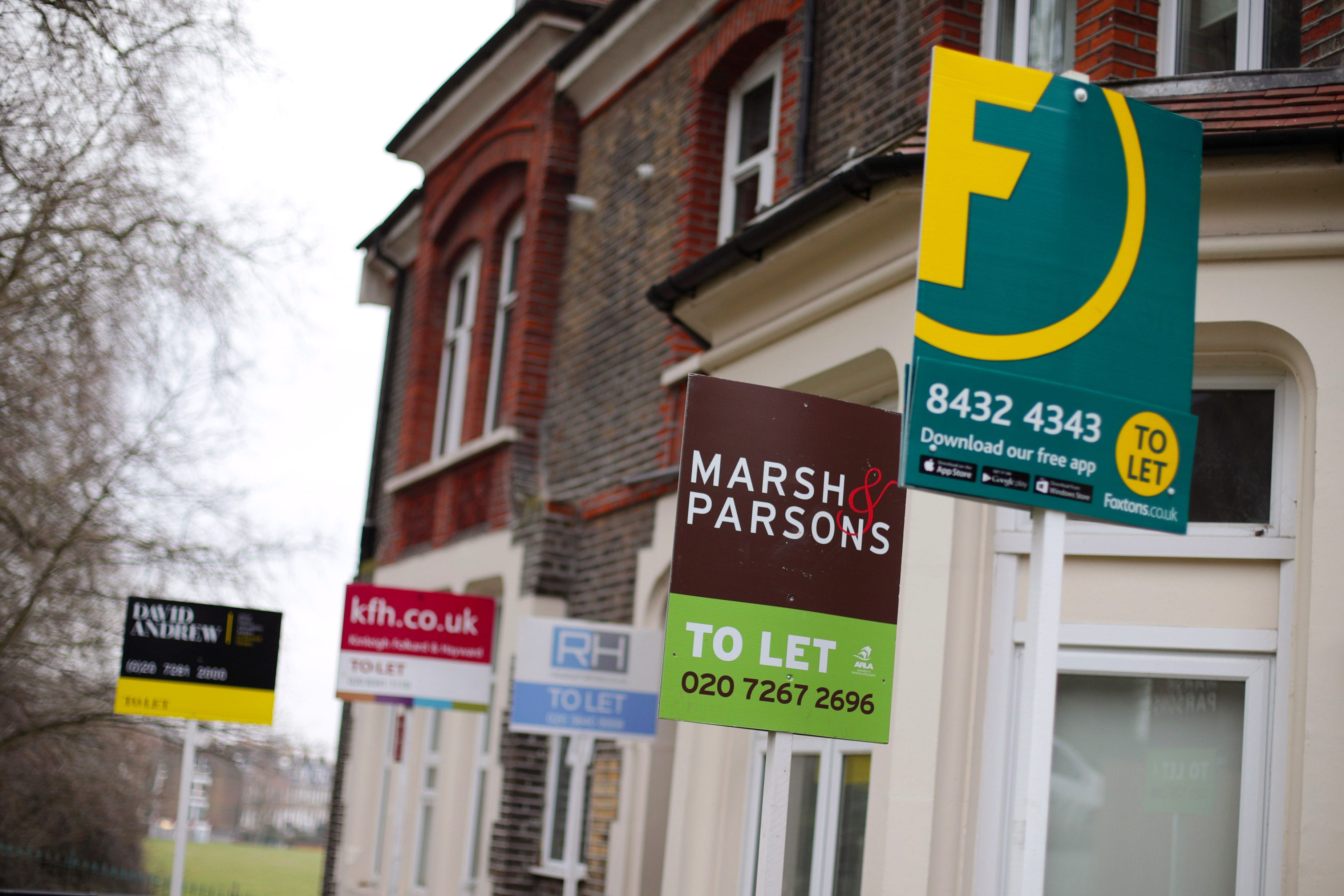Rental costs up £3,240 a year on average since end of pandemic
Renters face paying about £270 more per month compared with 2021, according to housing search company Zoopla.

Your support helps us to tell the story
From reproductive rights to climate change to Big Tech, The Independent is on the ground when the story is developing. Whether it's investigating the financials of Elon Musk's pro-Trump PAC or producing our latest documentary, 'The A Word', which shines a light on the American women fighting for reproductive rights, we know how important it is to parse out the facts from the messaging.
At such a critical moment in US history, we need reporters on the ground. Your donation allows us to keep sending journalists to speak to both sides of the story.
The Independent is trusted by Americans across the entire political spectrum. And unlike many other quality news outlets, we choose not to lock Americans out of our reporting and analysis with paywalls. We believe quality journalism should be available to everyone, paid for by those who can afford it.
Your support makes all the difference.The average cost of renting a newly let property has risen by £3,240 per year since the end of the string of Covid-19 lockdowns, according to new research.
Renters now face an average annual cost of £15,240, home search portal Zoopla said, up about £270 per month since the end of the pandemic.
The swift growth started in 2021, as lockdowns were lifted and people looked to move house, but were faced with a tiny supply of properties to choose from.
The number of rented homes hasn't grown since 2016, creating scarcity for renters at a time when demand has boomed on a strong labour market and the rising cost of home ownership
Since then, the annual cost of renting has rocketed by 27%, compared with a 19% rise in average income over the same time.
Zoopla said the speed of rent rises has now hit a three-year low, with tenants struggling to afford what is out there on the market and often looking to move to cheaper areas as a result.
Richard Donnell, executive director at Zoopla, said: “Private renters moving home have faced rents rising faster than earnings over the last three years.
“The number of rented homes hasn’t grown since 2016, creating scarcity for renters at a time when demand has boomed on a strong labour market and the rising cost of home ownership.
“Rental growth has slowed but we expect an ongoing lack of rental supply to keep an upward pressure on rents.”
Labour has said it wants to build 1.5 million new homes over the next five years, and has said it will loosen planning laws to make it easier for building firms.
But Zoopla said it does not expect a big increase in the number of homes for rent next year.
The number of homes available remains below pre-pandemic levels in all regions except the East Midlands.
The ambitions to expand home building are important, as the quickest way to ease the pressure on renters is to boost the supply of private and social rented homes
That is partly because private landlords have been selling off rental homes in recent years because of higher mortgage costs.
Despite this, Zoopla said the peak of the private landlord sell-off has now passed, and that landlords would now be waiting to see when interest rates are lower to buy more homes, which will increase supply in the rental market.
Mr Donnell added: “The ambitions to expand home building are important, as the quickest way to ease the pressure on renters is to boost the supply of private and social rented homes.
“Private landlords will continue to play an important role and should be encouraged to remain in the market.”